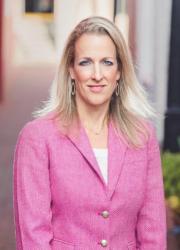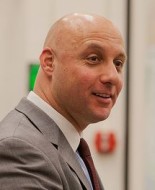Economics is the study of human action; it’s the study of individuals making choices. As a result, we can use the “economic way of thinking” to understand the decisions people make when it comes to all types of behavior, including dating and marriage, Spring break and Vegas vacations, and, yes, even why terrorists commit acts of violence or voluntarily die for their cause. People respond predictably to incentives, and economics gives us the lens to see and understand why people do what they do.
Four economic concepts that illuminate both terrorist and dating behavior (Happy Valentine’s Day, by the way) are revealed preference, “thinking at the margin,” opportunity cost, and sunk cost.
Revealed preference is the concept that actions speak louder than words. So, if you ask someone out on a date and receive the reply, “I’d love to, but I have to work on my term paper tonight,” what’s really being said is that the benefit of going out with you is less than the cost—the time given up working on the paper. Some may argue we’re being too rigid with the “I’d love to but” explanation; however, let’s be honest—this person does not literally have to work on the paper. It’s a sure bet that if your would-be date had the opportunity to go out with a celebrity, he or she would risk an F on that particular paper. Terrorists act in kind; their actions reveal to us why they do it. Terrorism is a means to an end, that end being some desired social or political change. Terrorists don’t plan, raise funds for, and execute violence for its own sake, but rather to achieve something else.
People rarely make all-or-nothing choices; rather, decisions are made based on what economists call the “marginal” (i.e., the one extra or additional) benefit and cost of each choice. This principle can be applied to dating and marriage. While dating choices are spurred by a variety of motivations, we’ll assume that person A wants to get married. Therefore, what is the purpose of dating when one’s goal is marriage? It’s information acquisition. If we use months as the time period, the marginal benefit of each month of dating is that it brings more information to someone about a partner. Conversely, each additional month also has a marginal cost, such as time not spent dating another person or the freedom of being single. Therefore, the optimal amount of time to date is until the marginal benefit (MB) of continuing to date is equal to the marginal cost (MC)—what one gives up. At this point (MB=MC), the person doesn’t have perfect information about a partner but information that is “good enough” to determine whether this is the one or it’s time to dissolve the relationship and move on.
The same is true of the perpetration of terrorist acts. Terrorists will plan and then act up to the point where the marginal benefit equals the marginal cost. Understanding this helps us see that terrorists are not necessarily irrational in what they’re attempting to do; they’ve weighed the expected costs against what they perceive are the expected future benefits, just like your valentine. The distinct difference is the moral context, which is always relevant to what people value and hence act upon. Your valentine doesn’t ask you to dinner at gunpoint; he or she woos rather than coerces, and this can only occur in the context of the ethos of freedom and human dignity. Terrorists operate within a different moral context, which means if we want less terrorism, we must see a change in the values and ideas people hold.
Economists are famous for saying nothing is free. While there might be a zero price ($0), there is never a zero cost. Whenever a person does A, the opportunity to do B must be forfeited. The notion that “love is free” is therefore wrong. If you truly love someone, even if you don’t spend money on this person, you give up a precious resource to be with the beloved—limited time. Terrorists, too, face scarcity. They must learn, save, innovate, and practice. The most effective terrorist organizations are the ones that do that well, thus illuminating the need to make terrorism “more expensive” if we want less of it. Economist Steve Horwitz was famous for saying “supply is demand in disguise”—the supply of any good or service in the market exists because suppliers think people want it! Terrorism exists because there are people who demand it. Less terrorism requires that terrorism be such an expensive choice—in terms of the risk of getting caught, the ensuing military reprisals, and the literal expenses—fewer people choose it. This also implies that we’ll never obtain zero terrorism, in the same way there will always be bad dates and poor gift choices on Valentine’s Day. Economic freedom makes all the difference here. Societies with greater economic and political freedom have far less terrorism and a thriving Valentine’s Day industry (expected to be a whopping $24 billion this year in the U.S.), based on the free choices of free people. Economic freedom means that persuasion replaces coercion, or as Deirdre McCloskey calls it, “sweet talk.”
Opportunity cost can also explain why we spend certain days or times of the day with person A but choose to be with person B on a different day or time. People spend their “prime time” or high opportunity-cost time (a subjective criterion) with people they truly love, are infatuated with, or consider important at that moment. Conversely, they will spend their “I really have nothing better to do at this time” time, their low opportunity-cost time, with people they’re not attracted to or deem not as important at that moment. Since Friday and Saturday nights are typically the prime nights (i.e., high opportunity-cost times), if a person asks someone out on a date for a Friday or Saturday night and gets a “yes,” this is a signal. People don’t spend high opportunity-cost times with someone for whom they have only lukewarm feelings. Terrorists act similarly. A terrorist act itself is not effective if its effects cannot be observed. The attacks of 9/11 were carefully planned to pick specific targets that reflected “Western capitalism,” like the World Trade Center, and the attacks occurred at busy commuting times in the morning. They could have struck at 11 p.m., but most people are asleep by then, and thus the effect is lost.
Finally, there is the sunk-cost fallacy. Many people stay stuck in bad or unhealthy relationships because of this fallacious economic thinking. People literally choose to stay in relationships they know are wrong. For example, Christians often find themselves in “unequally yoked” relationships, or ones that are simply unhealthy. However, they don’t end those relationships, because they feel the time they’ve invested will have been a waste. Therefore, these individuals try to force the relationship to work or even marry the person in order to rationalize the investment of time. This is bad economic decision-making.
Comparing your courtship routine to terrorism sounds bizarre (we get it). But the apparent polarity belies the similarities in all human actions predicated on maximizing benefits and minimizing costs. Supply and demand are always at work, whether in the context of the economic realities listed above or within the moral context of the culture in which human beings act. God-inspired love will not only change how you date or relate to your spouse; it will also subvert the most depraved acts of humankind. And free market exchanges that use sweet talk and persuasion rather than violent coercion will continue to move societies from plunder to greater cooperation—important not just in commerce but in dating and terrorism, too.


